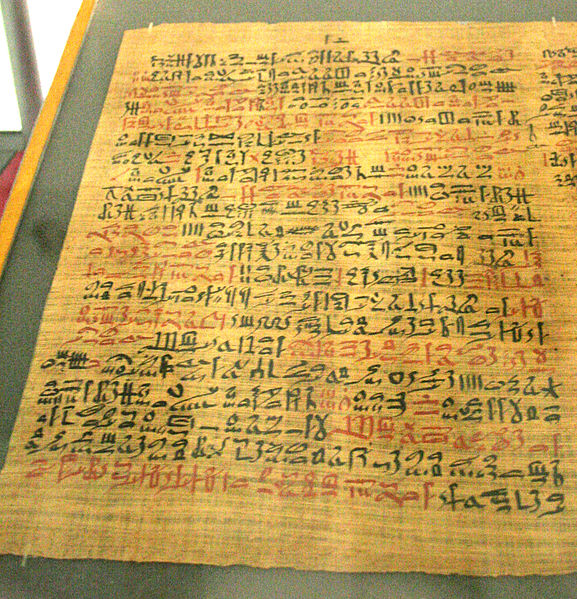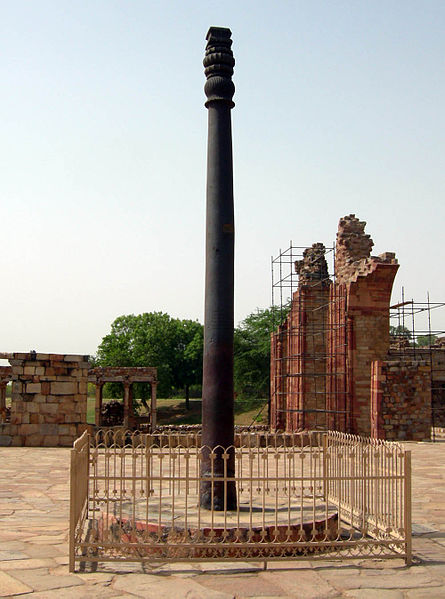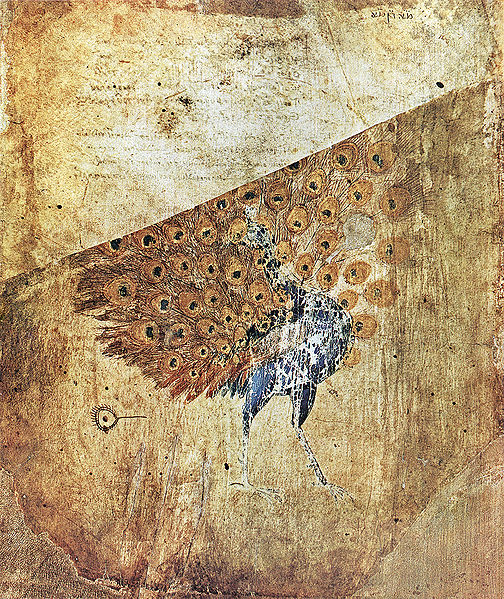The history of science covers the development of science from ancient times to the present. It encompasses all three major branches of science: natural, social, and formal. Protoscience, early sciences, and natural philosophies such as alchemy and astrology during the Bronze Age, Iron Age, classical antiquity, and the Middle Ages declined during the early modern period after the establishment of formal disciplines of science in the Age of Enlightenment.
The Ebers Papyrus (c. 1550 BCE) from ancient Egypt
Clay models of animal livers dating between the nineteenth and eighteenth centuries BCE, found in the royal palace at Mari in what is now Syria
Star list with distance information, Uruk (Iraq), 320-150 BCE, the list gives each constellation, the number of stars and the distance information to the next constellation in ells
Ancient India was an early leader in metallurgy, as evidenced by the wrought-iron Pillar of Delhi.
Science is a rigorous, systematic endeavor that builds and organizes knowledge in the form of testable explanations and predictions about the world. Modern science is typically divided into three major branches: the natural sciences, which study the physical world; the social sciences, which study individuals and societies; and the formal sciences, which study formal systems, governed by axioms and rules. There is disagreement whether the formal sciences are science disciplines, as they do not rely on empirical evidence. Applied sciences are disciplines that use scientific knowledge for practical purposes, such as in engineering and medicine.
The Plimpton 322 tablet by the Babylonians records Pythagorean triples, written in about 1800 BCE
Plato's Academy mosaic, made between 100 BCE to 79 AD, shows many Greek philosophers and scholars
The first page of Vienna Dioscurides depicts a peacock, made in the 6th century
Drawing of the heliocentric model as proposed by the Copernicus's De revolutionibus orbium coelestium








